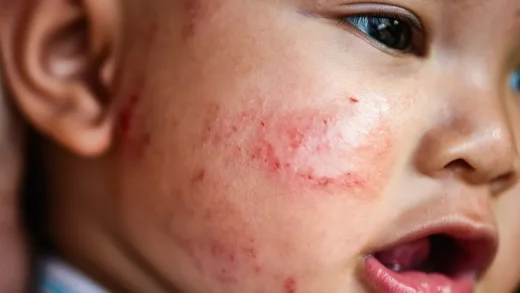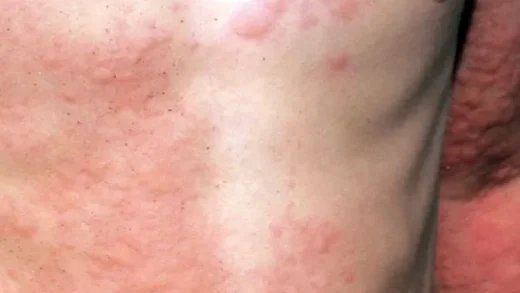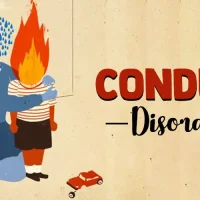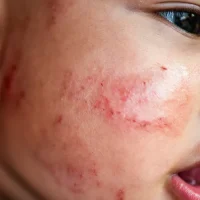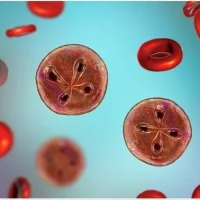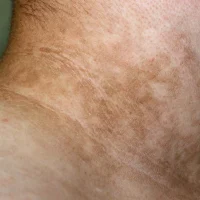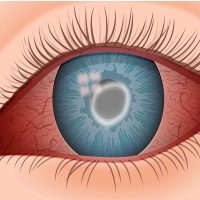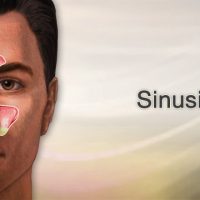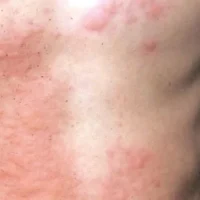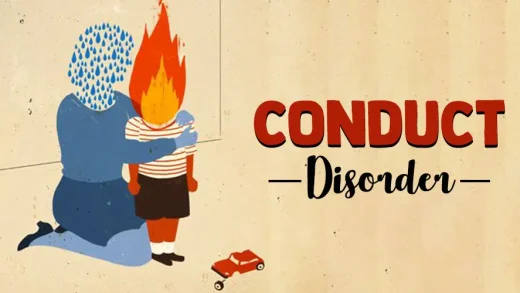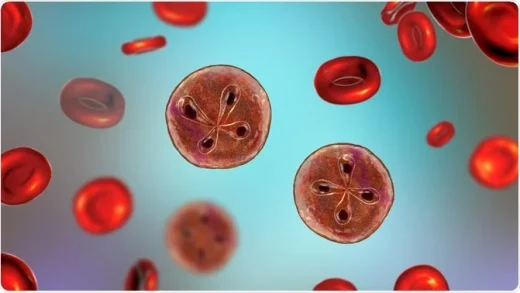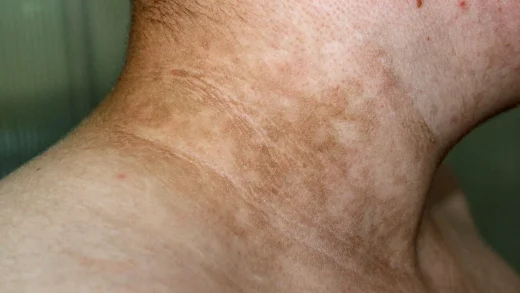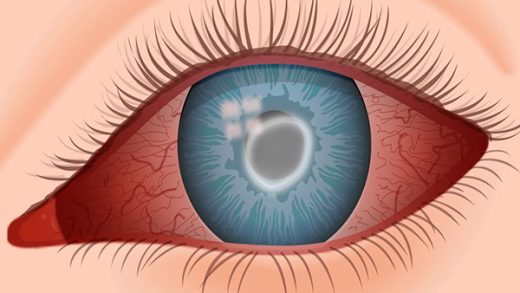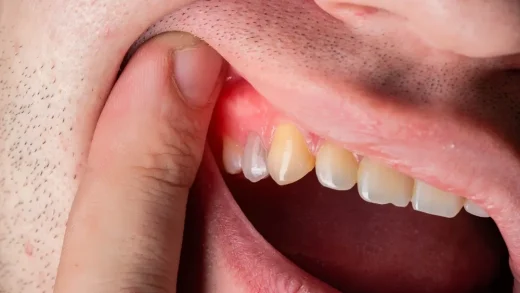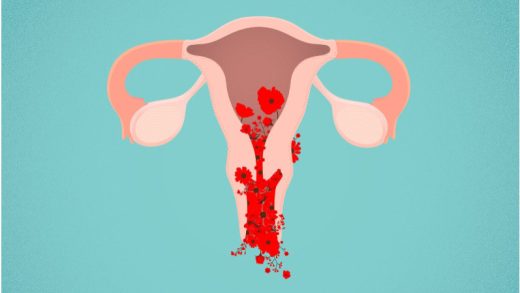Conduct disorder (CD) is a mental health condition that involves a consistent pattern of aggressive and disobedient behaviors. It affects children and teens and is treatable with various forms of psychotherapy (talk therapy).
What is conduct disorder?
Conduct disorder (CD) is a mental health condition that affects children and teens that’s characterized by a consistent pattern of aggressive behaviors and actions that harm the well-being of others. Children with conduct disorder also often violate rules and societal norms.
Conduct disorder lies on a spectrum of disruptive behavioral disorders, which also includes oppositional defiant disorder (ODD). In some cases, ODD leads to CD.
Conduct disorder often occurs alongside other psychiatric conditions, including:
- Depression.
- Attention-deficit/hyperactivity disorder (ADHD).
- Learning disorders.
What is the difference between conduct disorder and personality disorders?
A personality disorder is a mental health condition that involves long-lasting, disruptive patterns of thinking, behavior, mood and relating to others. Most personality disorders begin in the teen years when personality further develops and matures. As a result, almost all people diagnosed with personality disorders are above the age of 18.
One exception to this is antisocial personality disorder (ASPD) — approximately 80% of people with this disorder will have started to show symptoms by the age of 11.
There’s not much difference between conduct disorder (CD) and ASPD, but CD is typically diagnosed in children. If an adult meets the criteria for both conditions, then a mental health professional would give them a diagnosis of ASPD instead of CD.
Who does conduct disorder affect?
Conduct disorder affects children and adolescents. It can have early onset before age 10, but commonly develops in adolescence (between ages 10 years to 19 years).
The condition is more common in children assigned male at birth (AMAB) than children assigned female at birth (AFAB). The average age of presentation is 10 years to 12 years in children AMAB and 14 years to 16 years in children AFAB.
How common is conduct disorder?
Conduct disorder affects anywhere between 2% and 10% of children and adolescents in the United States.
Symptoms and Causes
What are the signs and symptoms of conduct disorder?
Characteristic behaviors of conduct disorder develop gradually over time. Children with conduct disorder tend to be impulsive and difficult to manage. They don’t seem to be concerned about the feelings of other people.
The four core behaviors of conduct disorder include:
- Aggression toward people and animals and/or violating others’ basic rights.
- Destruction of property.
- Deceiving, lying and/or stealing.
- Serious violations of rules.
Signs of aggressive behavior toward others include:
- Bullying.
- Physical violence (potentially with a weapon).
- Verbal fights.
- Threatening.
- Forcing sexual activity.
- Blaming others for their own behavior.
- Hurting animals.
Signs of the destruction of property include:
- Intentionally setting fires.
- Vandalizing or destroying others’ property.
Signs of deceiving, lying and stealing include:
- Lying to get a favor or to avoid responsibilities.
- Stealing from individual people or stores.
- Breaking into houses or businesses.
Signs of violations of rules include:
- Breaking rules without clear reason.
- Not going to school (truancy).
- Running away from home.
- Frequently breaking any rules set by their parents.
Other common signs of conduct disorder include:
- Heavy alcohol drinking and/or heavy substance use.
- Engaging in frequent and risky sex.
- Becoming easily frustrated.
- Making no effort to hide their aggressive behaviors.
- Not showing remorse for their actions.
- Difficulty making and maintaining friendships.
It’s important to note that occasional rebellious behavior is common during childhood and adolescence. The signs and symptoms that lead to the diagnosis of conduct disorder demonstrate a disruptive and repetitive pattern.
Signs of conduct disorder in adults
Adults who have conduct disorder may have difficulty keeping a job or maintaining relationships. They may be prone to illegal or dangerous behavior.
Symptoms of conduct disorder in an adult may be diagnosed as antisocial personality disorder.
What causes conduct disorder?
Researchers aren’t sure what exactly causes conduct disorder (CD), but they think it’s a complex combination of genetic/biological and environmental factors.
Genetic/biological factors:
- Various studies show that certain characteristics of CD can be inherited, including antisocial behavior, impulsivity, temperament, aggression and insensitivity to punishment.
- High testosterone levels are associated with aggression.
- Traumatic brain injury, seizures and neurological damage can contribute to aggression.
Parental, familial and environmental factors:
- Parents of adolescents with CD often have engaged in substance use and antisocial behaviors. They’re also frequently diagnosed with ADHD, mood disorders, schizophrenia or antisocial personality disorder.
- A home environment that lacks structure and adequate supervision with frequent conflicts between parents can lead to maladaptive behavior in children, which can lead to CD.
- Children exposed to frequent domestic violence are more likely to develop CD.
- Living in low social and economic environments with overcrowding and unemployment leads to economic and social stress with a lack of adequate parenting. CD affects more children living in low economic environments than not.
- Availability of drugs and increased crime in a child’s neighborhood increases their risk of developing CD.
It’s important to note that conduct disorder can occur in children from high-functioning, healthy families.
Diagnosis and Tests
How is conduct disorder diagnosed?
A mental health professional diagnoses conduct disorder using criteria provided in the American Psychiatric Association’s Diagnostic and Statistical Manual of Mental Disorders.
They diagnose conduct disorder in children or adolescents who’ve demonstrated three or more of the following behaviors in the previous 12 months, in addition to at least one in the previous six months:
- Aggression toward people and/or animals.
- Destruction of property.
- Deceiving, lying or stealing.
- Serious violations of parental rules.
These behaviors must be significant enough to impair functioning in relationships, at home, at school and/or at work.
Your child will likely need to see a child and adolescent psychologist or psychiatrist if they’re showing signs of conduct disorder. These mental health professionals use specially designed interview and assessment tools to evaluate a child for a mental health condition.
Psychologists and psychiatrists often rely on reports from the child’s parents, siblings, friends and teachers to get a full understanding of the child’s behavior.
Management and Treatment
How is conduct disorder treated?
The go-to treatment for conduct disorder (CD) is multiple forms of psychotherapy (talk therapy) for your child and family, as well as community-based treatment.
Therapies include:
- Parent management training: The goal of this therapy is to train the child’s parents to set consistent discipline with proper rewarding of positive behaviors.
- Psychotherapy: “Psychotherapy” is a term for a variety of treatment techniques that aim to help a person identify and change troubling emotions, thoughts and behaviors. Working with a mental health professional can provide support, education and guidance to the person and their family. Psychotherapy for conduct disorder usually needs to target family life and school with a focus on improving family dynamics, academic functioning and improving your child’s behavior in the context of various environments.
- Anger management training: The goal of anger management is to reduce both your child’s emotional feelings and the physiological arousal that anger causes. You can’t get rid of or totally avoid the things or people that make them angry, so anger management training teaches your child how to control their reactions.
- Individual psychotherapy, such as cognitive behavioral therapy: Individual therapy for a child with conduct disorder focuses on developing problem-solving skills, strengthening relationships by resolving conflicts and learning skills to decline negative influences in their environment.
- Community-based treatment: This treatment involves therapeutic schools and residential treatment centers that can provide a structured program to reduce disruptive behaviors.
Healthcare providers typically don’t use medication to directly treat conduct disorder, but as other mental health conditions often occur alongside conduct disorder, your child may benefit from medication to manage these conditions.
Prevention
Can conduct disorder be prevented?
At this time, there’s no known way to prevent conduct disorder, as it’s likely caused by a complex combination of factors, but many of the related problems might be lessened with treatment. Seeking help as soon as symptoms appear can help decrease the disruption to your child’s life, family and friendships.
Outlook / Prognosis
What is the prognosis (outlook) for conduct disorder?
The prognosis (outlook) for conduct disorder depends on how early the condition developed and if it was treated.
Usually, the disruptive behaviors of conduct stop during early adulthood, but in about one-third of cases, they continue. Many of these cases meet the criteria for antisocial personality disorder.
Early onset of the condition (before 10 years of age) is associated with a poorer prognosis and is strongly associated with a significant decline in school performance.
Some children and adolescents with conduct disorder develop other mental health conditions, including:
- Mood or anxiety disorders.
- Somatic symptom disorder.
- Alcohol use disorder and/or substance use disorder.
- Early adult-onset psychotic disorders.
Depression and bipolar disorder may also develop in the teen years and early adulthood. Suicidal ideation can be a complication of these conditions. It’s important to get your child immediate medical care if they’re talking about or threatening suicide.
Living With
How do I take care of my child with conduct disorder?
If your child has conduct disorder, aside from getting them professional care, you can help them and yourself in the following ways:
- Learn more about conduct disorder, including recent research on effective treatment approaches.
- Talk to a mental health professional, preferably one who’s trained in diagnosing and treating conduct disorder.
- Explore the treatment options available. Treatment must be individualized to meet the needs of your child and should be family-centered.
- Find a family support group or organization in your community.
When should my child see their healthcare provider about conduct disorder?
If your child has been diagnosed with conduct disorder, and their behavior becomes more severe or further disrupts family or school life, talk to their mental health provider.
If your child displays behavior that harms or endangers others, such as other people or animals, or themselves, it’s important to get them immediate medical care.
A note from us
Children and teens who are disobedient or aggressive can be very challenging for parents. While it’s normal for young children and teens to show defiant behavior from time to time, frequent and disruptive aggressive behavior may indicate conduct disorder (CD).
Starting treatment early for conduct disorder is important, and the first step to treatment is to talk with a healthcare provider or a mental health provider. Don’t be afraid to ask your provider questions. They’re available to help.

